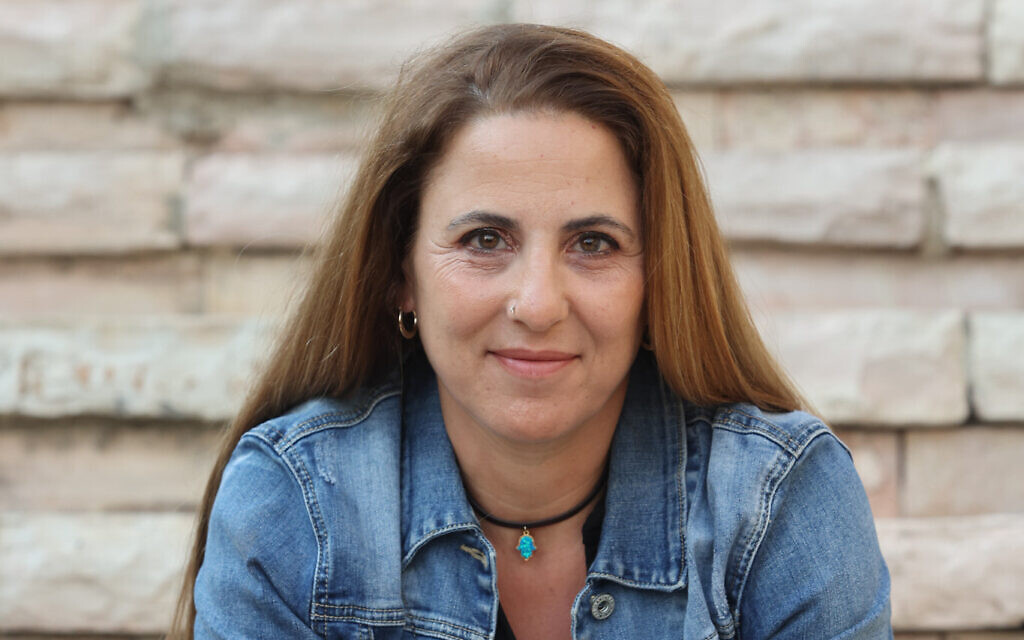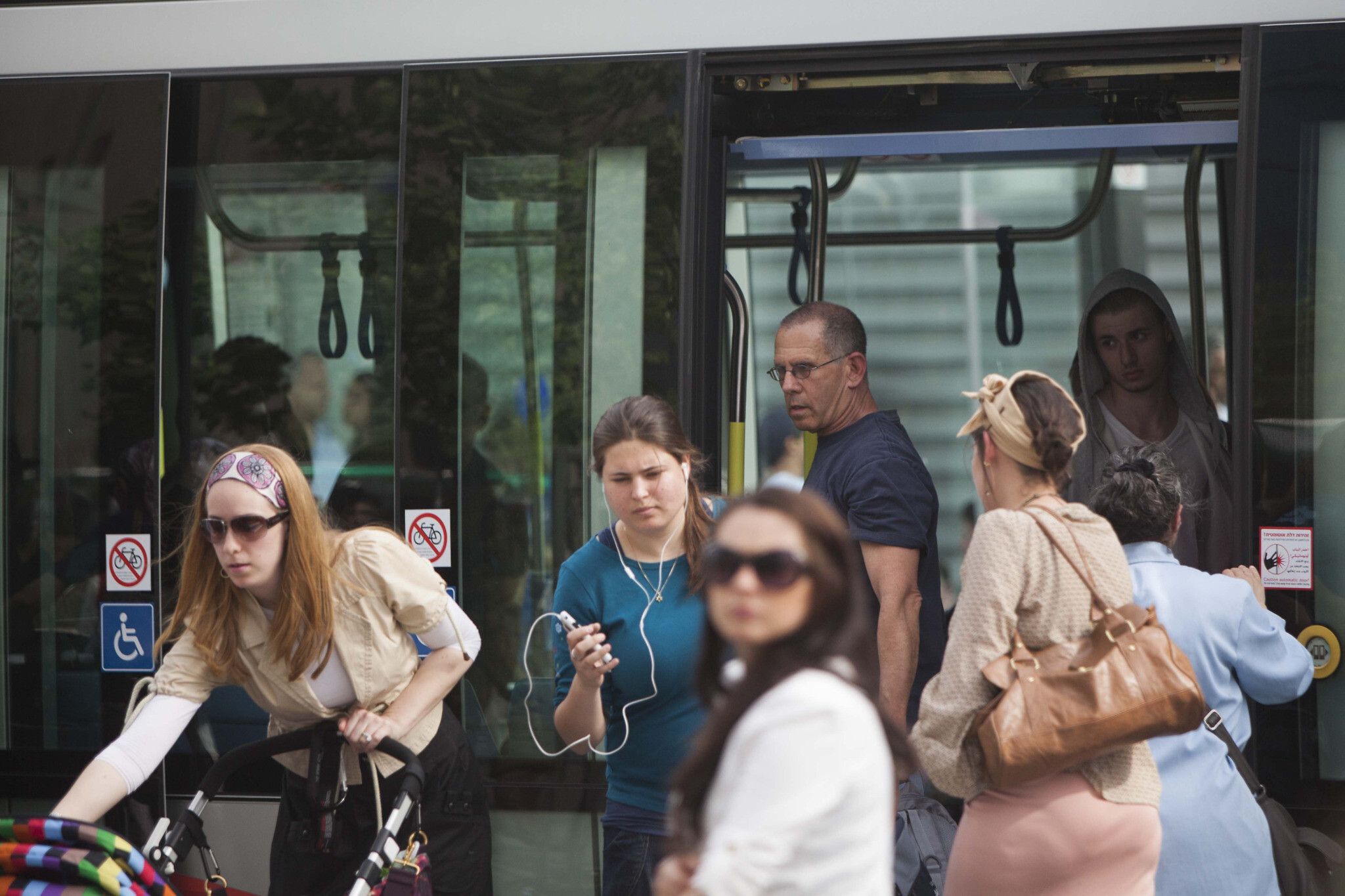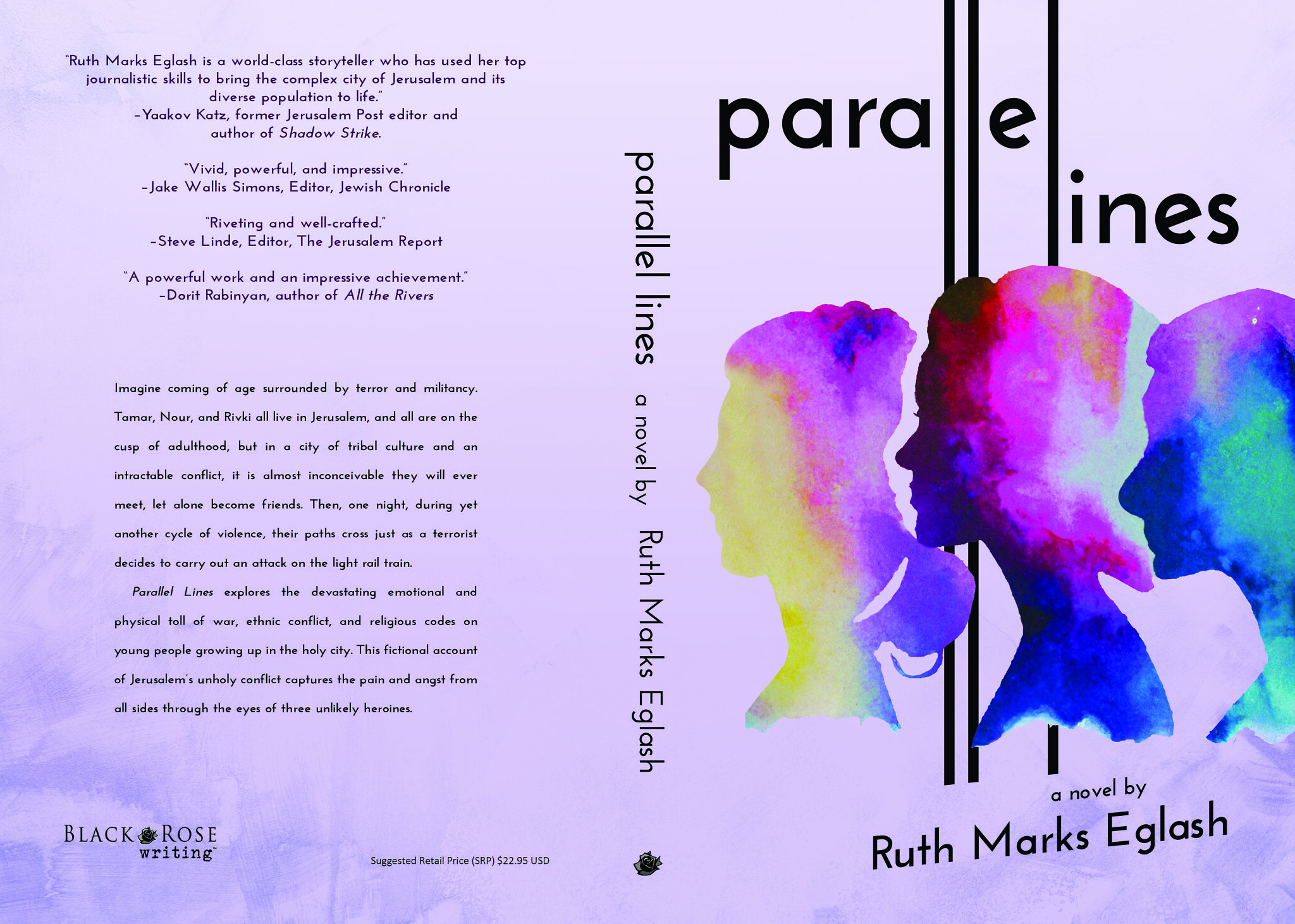In teen-driven debut, a news veteran switches to fiction to unravel Jerusalem’s lives
Ruth Eglash plumbs her experiences as a veteran reporter in ‘Parallel Lines,’ a novel about three girls whose stories cross on the tracks

When journalist Ruth Eglash began writing her debut novel, “Parallel Lines,” she was told it was a mistake to write fiction about the Israeli-Palestinian conflict.
“People thought I was crazy,” said Eglash, currently senior correspondent for US publication Jewish Insider. “There are so many pitfalls and holes in writing about it, but that’s what was inside me.”
“Parallel Lines” is about Tamar, Rivka and Nour, three Jerusalem teenage girls, of whom two are Israeli, one secular and one ultra-Orthodox, and one is a Palestinian Muslim. The novel’s 304 pages delve into the intertwining personal dramas that play out in the complicated city they all call home.
The title is a reference to Jerusalem’s light rail, which currently consists of a single route, the Red Line, linking the city’s divergent neighborhoods. The train, as fraught as it is mundane, is where the three young women come together on a daily basis.
The book is a product of Eglash’s decades covering the Israeli-Palestinian conflict, and in particular, her eight years as deputy bureau chief for The Washington Post in Jerusalem.
But there’s a personal perspective as well, as Eglash pulls from the experiences of her own three Israel-born children, educated in Jerusalem schools and users of the light rail.
Eglash’s daughter Gefen attended middle school in downtown Jerusalem and would often come home with questions about suspicious objects and Palestinians and why ultra-Orthodox Jews were blocking a particular city intersection.

“I had this weird situation where on one hand, I’m explaining Israel to the world — and actually struggling to explain to my 13-year-old daughter who wanted to understand what’s going around here,” said Eglash. “It’s so nuanced in the paper, you have only 700 or 800 words, and you only have your audience for a short time.”
She wanted more like 90,000 words (specifically, 90,939 words) to explain her outlook on this region. Having that leeway is a new twist for Eglash.
Now 51, Eglash has worked in journalism for most of her professional career, save for a recent stint as spokesperson for Israeli envoy Gilad Erdan in Washington and New York.
She moved to Israel at 22 and worked for local media companies, including The Jerusalem Post, covering arts, entertainment and later social welfare in Israel, along with a brief stint at the Milwaukee Jewish Chronicle during several years spent with her husband in his US hometown.
It was Eglash’s years with The Washington Post, from 2013 to 2020, that pushed her to write the book.
“I really tried to see both sides of the story when I was covering the conflict,” said Eglash. “I had a great teacher in [bureau chief] William Booth, an amazing journalist. He said to me when he arrived, ‘Ruth, I come into this conflict as a blank page and I’m going to listen to everyone and not decide about anything.'”
Eglash tried to do the same, despite her Jewish upbringing in London and her Israeli father and other relatives.
There’s often no opportunity to offer the narrative of the other side, said Eglash, as most media outlets have their positions set from the start. And news consumers’ backgrounds also color how they view the conflict.
“That’s where this book is born from,” said Eglash. “I have the privilege of being Israeli, understanding the language and culture, while also growing up in multicultural London, where I went to school with kids of all backgrounds.”

Eglash began writing “Parallel Lines” in 2017, and her research work included some typical journalistic practices, such as interviewing Jerusalem teens, (including her daughter Geffen and friends), a Haredi journalist with four daughters, and Eglash’s hairdresser, who left the ultra-Orthodox community and whose storyline is echoed in “Parallel Lines.”
She reached out to young Palestinian women from East Jerusalem who told “hair-raising stories” about growing up in Jerusalem surrounded by suspicion and blame even when innocently heading home from school.
“I feel like sometimes the girls are a little different than guys,” Eglash said. “They’re less militant, and have strong beliefs but they have different ways of achieving that. One told me, ‘We just need to get ourselves educated, then we’ll defeat the occupation.'”
She channeled all those young women into “Parallel Lines,” which focuses on teenage girls Tamar, Nour and Rivka, supported by their parents, siblings and friends.
Though she wrote a book about teenagers, Eglash sees “Parallel Lines” as a crossover work with themes that speak to adults as well.
While she loves fiction — as a 12-year-old she handwrote a book and sent it to a book publisher, and received a gracious rejection letter in response — there were frustrations in making the switch after some 20 years as a reporter.
Eglash’s first drafts read more like nonfiction according to some of her early readers, and she had to learn how to use emotions to show the story rather than merely tell it. And she needed to shed her commitment to accuracy and take creative license to make it a work of fiction.
Each of the teenage characters in “Parallel Lines” is seeking her own way through the conflict, trying out different routes and figuring out their friends and foes.
Ultimately, “Parallel Lines” is a book of hope, said Eglash.
“Despite all the cultural differences, underneath all teens are struggling,” she said. “Maybe it is a bit of wishful thinking that they meet and get along.”
“Parallel Lines” by Ruth Eglash, 304 pages, published by Black Rose Writing.
This article contains affiliate links. If you use these links to buy something, The Times of Israel may earn a commission at no additional cost to you.
There's no paywall on The Times of Israel, but the journalism we do is costly. As an independent news organization, we are in no way influenced by political or business interests. We rely on readers like you to support our fact-based coverage of Israel and the Jewish world. If you appreciate the integrity of this type of journalism, please join the ToI Community.

We’re really pleased that you’ve read X Times of Israel articles in the past month.
That’s why we started the Times of Israel eleven years ago - to provide discerning readers like you with must-read coverage of Israel and the Jewish world.
So now we have a request. Unlike other news outlets, we haven’t put up a paywall. But as the journalism we do is costly, we invite readers for whom The Times of Israel has become important to help support our work by joining The Times of Israel Community.
For as little as $6 a month you can help support our quality journalism while enjoying The Times of Israel AD-FREE, as well as accessing exclusive content available only to Times of Israel Community members.
Thank you,
David Horovitz, Founding Editor of The Times of Israel








